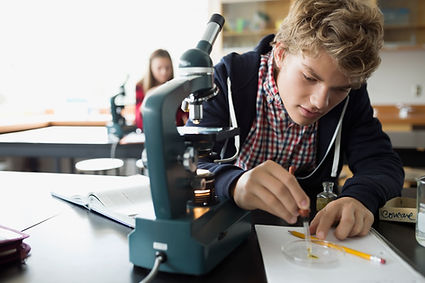
Science Tutoring
Page information currently being updated...
.jpg)
Science Tutoring
Page information currently being updated...
.jpg)
Science Tutoring
Page information currently being updated...
.jpg)
Science Tutoring
Page information currently being updated...
.jpg)
Science Tutoring
Page information currently being updated...
.jpg)
.png)
"Changing the future... one session at a time!"
Science Tutoring
Science is the study of the objective world. It’s primary aim is to explain what is around us and how we interact with it.
This is achieved through measurement of different scientific parameters and explanations of the resultant data through scientific theories. Through the study of science, students will become familiar with these measurements and be able to effectively weigh up the evidence, aiming to present an argument for what they think is the underlying cause.
.jpg)
The study of science in today’s curriculum incorporates the three major scientific disciplines: Biology, Chemistry and Physics. Each of these disciplines looks at the world through a slightly different lens. Where the biologist is interested in living systems with their currency being cells. The chemist looks at the world at the atomic level, breaking things down using elements. The physicist sees things at an even smaller degree of analysis with the aid of mathematics. By the end of secondary school, students should end up with an appreciation of all three of the sciences and the different approaches as well as the perspectives each of them take.
We can help students of all ages and levels improve their academic performance in Science or specifically prepare for GCSE or A Levels. If you or your student is struggling with any of the scientific content taught or need help with exam preparation then our tutors are equipped to aid you.
Our science students gain confidence when dealing with the fundamental up to the complex scientific ideas. In addition, we hope to motivate students in their own pursuit of the scientific endeavour.
The basis of the tuition offered is structured around the National Curriculum covering all three of the main sciences. Student will be exposed to a tour of the scientific world with topics as varied as; evolution, the structure of the atom and space physics.
The hope is to give students a better appreciation of the workings of the world around them and to instil the process of the scientific method which was used to obtain every fact present in any science textbook. This is done by focusing on descriptions of basic experiments and their results followed by possible explanations of why they occurred. Students should be encouraged to not only take in what is present in textbooks but question it, as the scientific field is constantly evolving.
The National Curriculum is built up of different awards across the three sciences with less content in the combined science award compared with the more in depth study in the trilogy award. However, both awards will cover:
Biology:
-
Cell structure, division and organisation
-
Homeostasis and physiology
-
Diseases, immunity and treatment.
-
Adaptation, inheritance and evolution
-
Ecology and the environment
Chemistry:
-
Elements and the periodic table
-
Atomic bonding
-
Titrations and electrolysis
-
Organic chemistry
-
Sustainable uses of chemicals
Physics:
-
Energy stores and transfer
-
Electricity
-
Particle models and radioactivity
-
Forces waves and electromagnetism
-
Space physics
The students of today could be the next Darwins, Flemings or Newtons of tomorrow!



